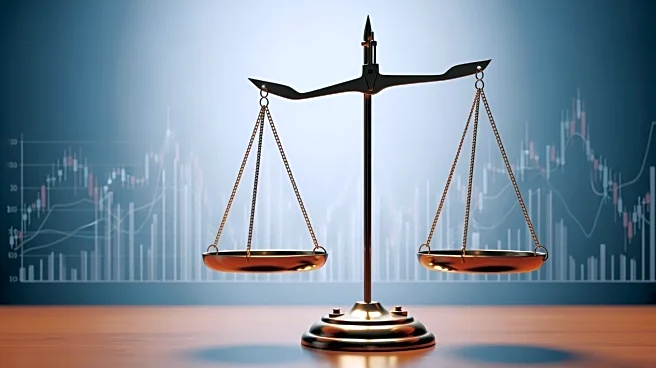What's Happening?
The U.S. Supreme Court is reviewing the legality of tariffs imposed during the Trump administration, with both liberal and conservative justices expressing skepticism about their legal basis. The case has significant implications for U.S. trade policy
and market stability. Following the hearing, market predictions suggest a low probability of the tariffs being upheld. The potential refund of collected duties could increase U.S. debt, affecting Treasury yields and stock market performance.
Why It's Important?
The outcome of this case could have far-reaching effects on U.S. trade policy and economic conditions. If the tariffs are overturned, it could lead to a shift in trade dynamics and impact industries reliant on imported goods. The potential refund of duties could strain government finances, influencing fiscal policy and market conditions. Businesses and investors are closely monitoring the situation, as changes in tariff policy could affect supply chains and market strategies.
What's Next?
The Supreme Court's decision will be pivotal in determining the future of U.S. tariff policy. If the tariffs are overturned, the White House may explore alternative measures to protect domestic industries. The decision could also prompt legislative action to address trade policy and its economic implications. Stakeholders, including businesses and policymakers, will need to adapt to the evolving trade landscape and its impact on economic conditions.

















